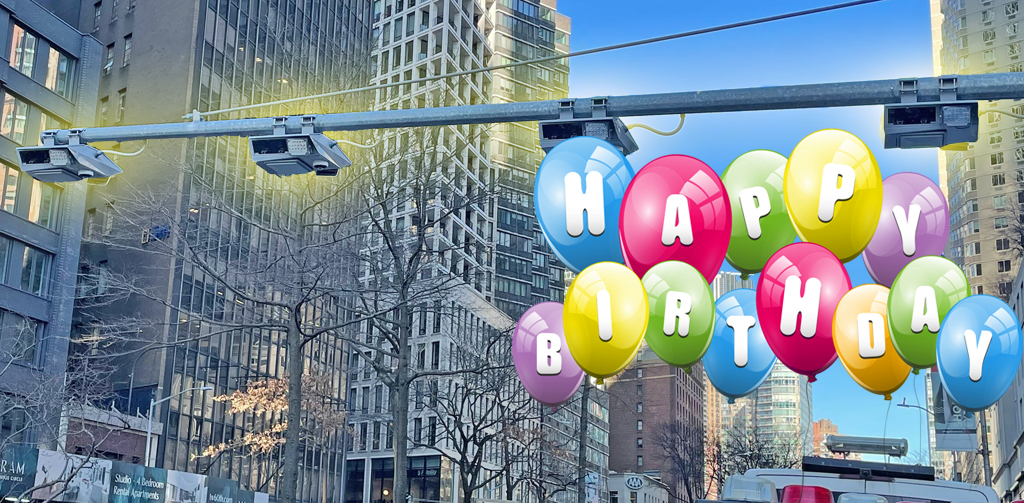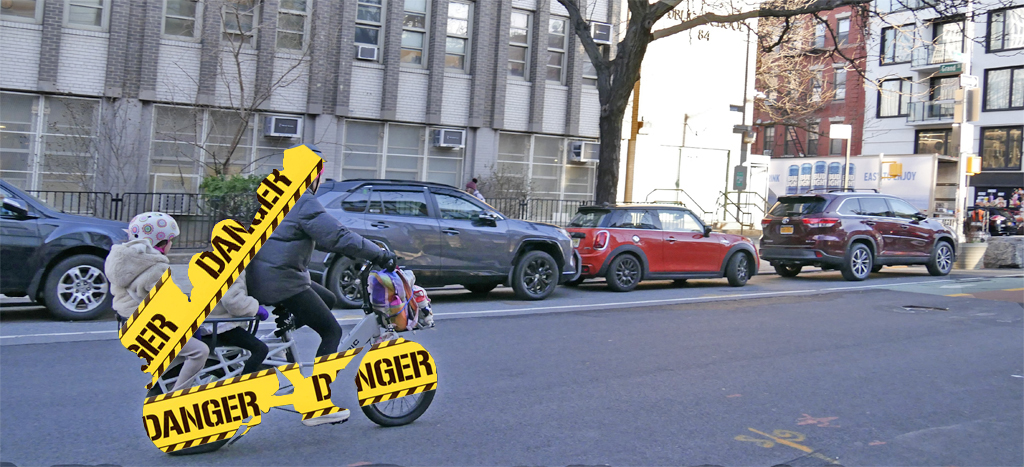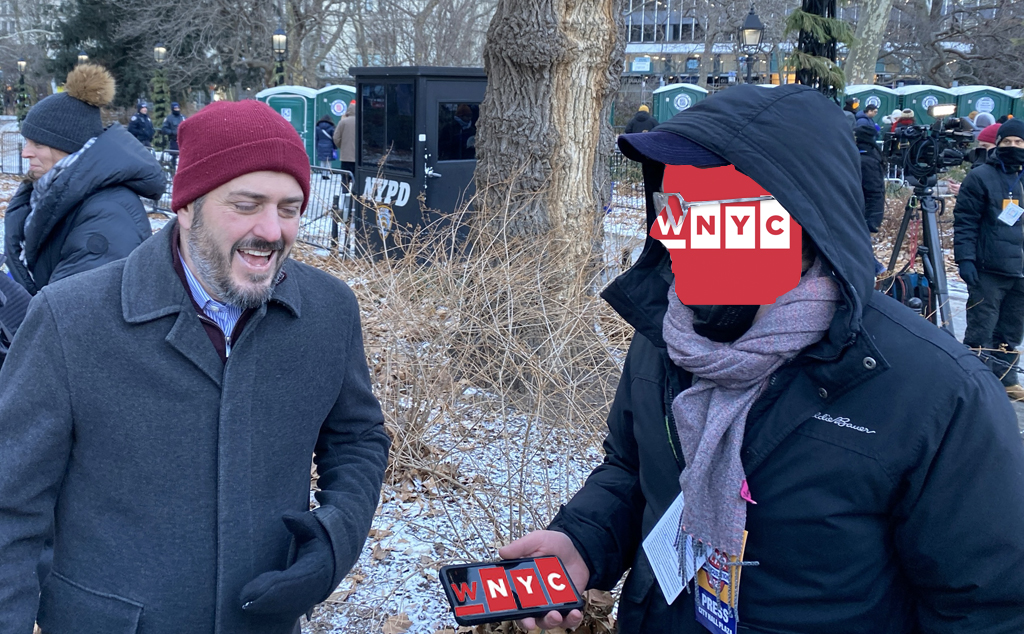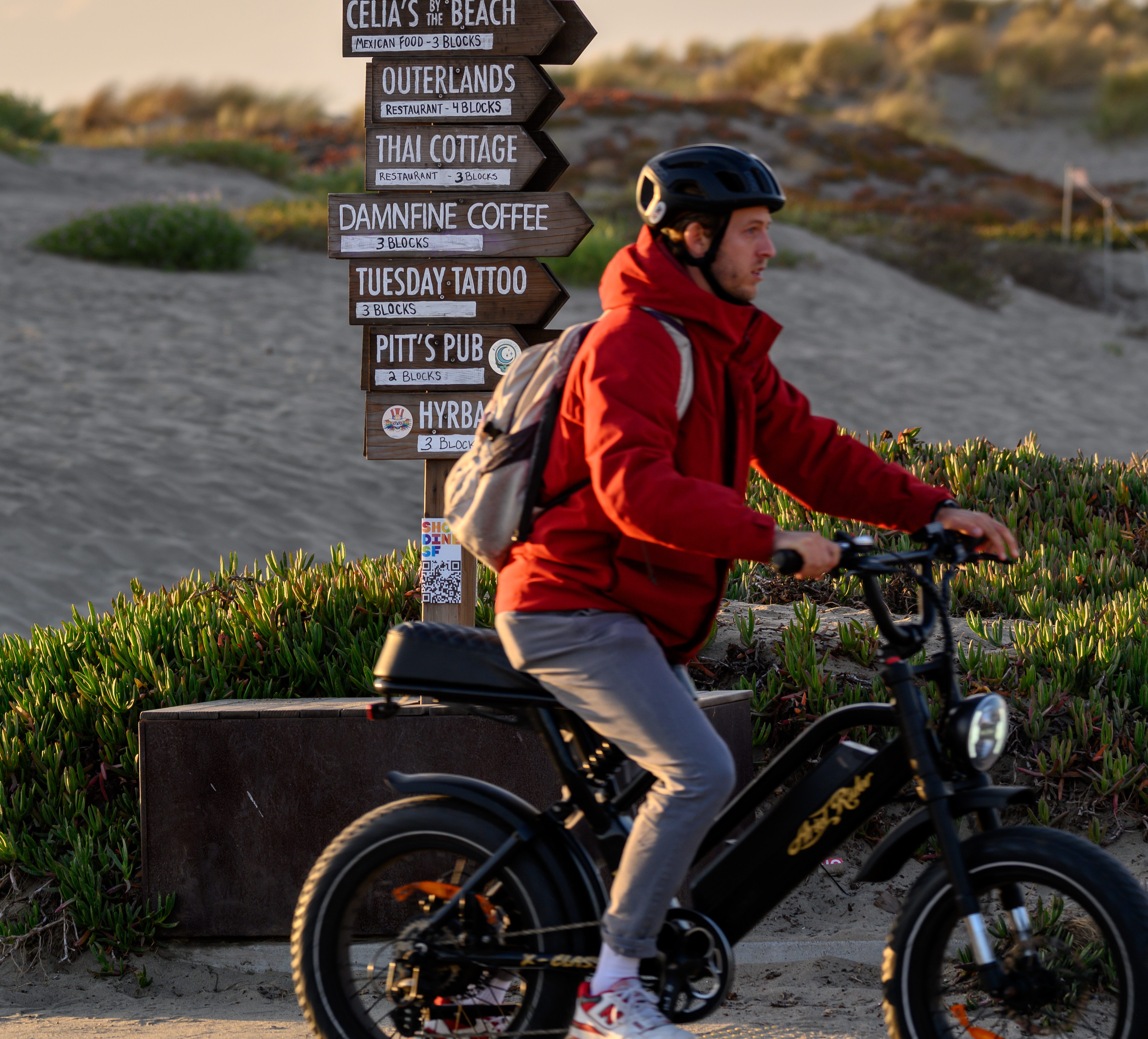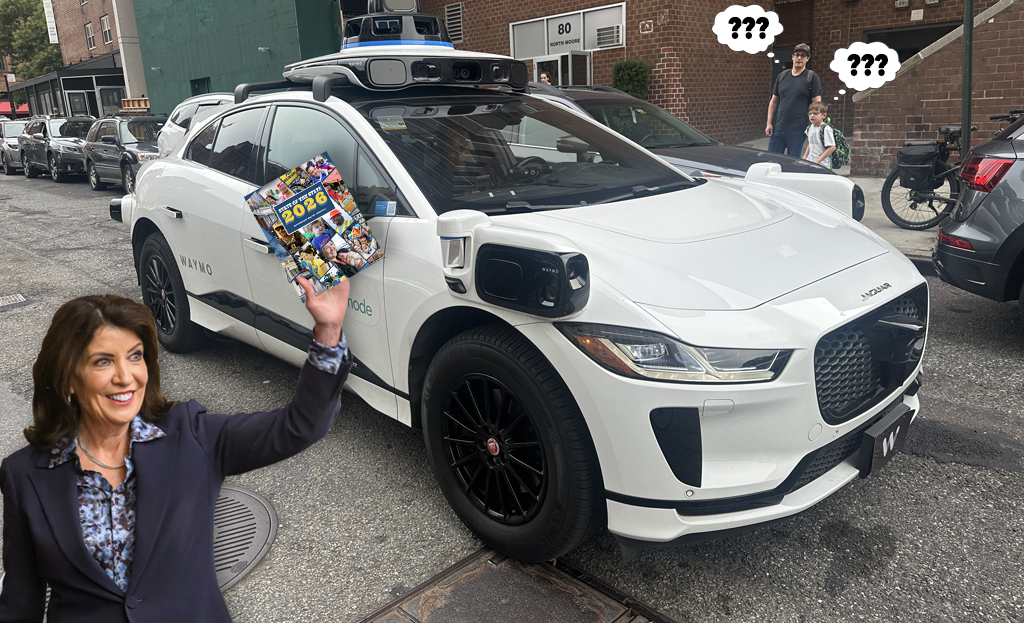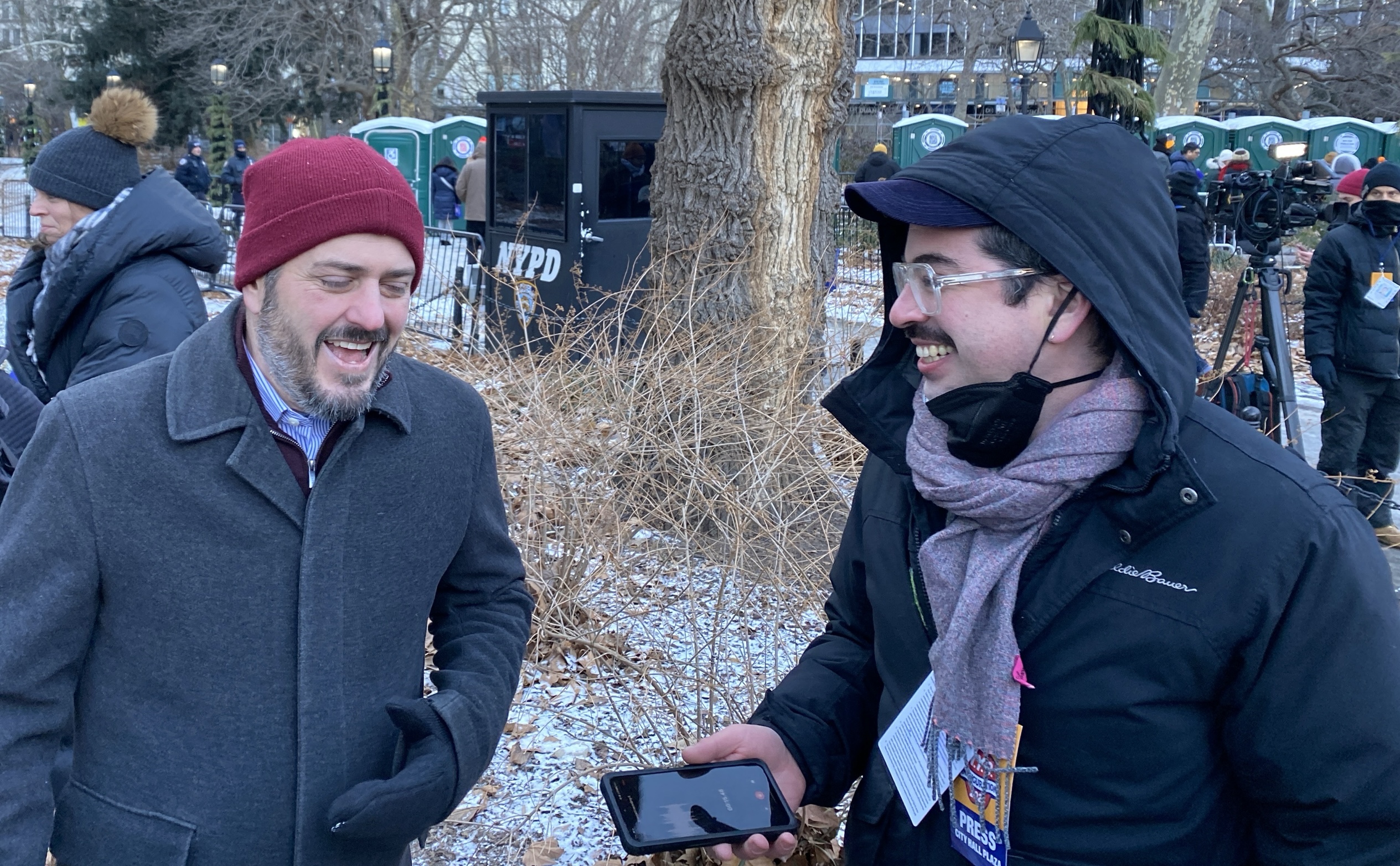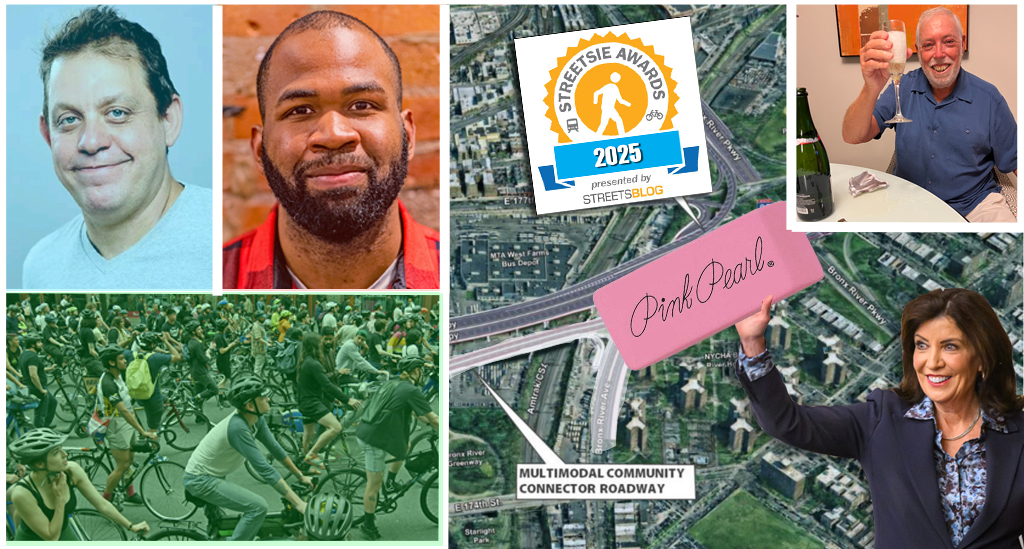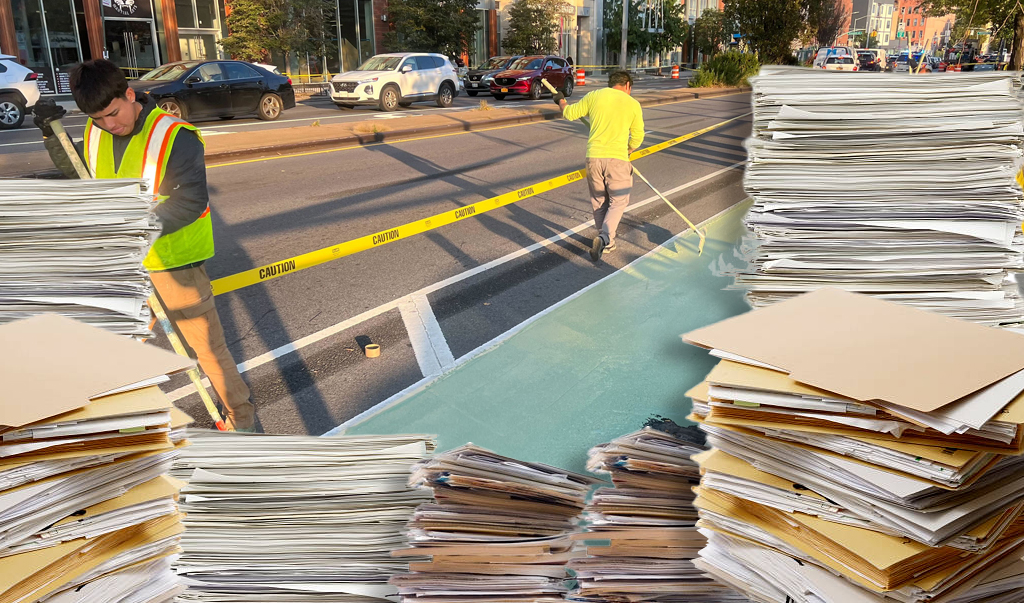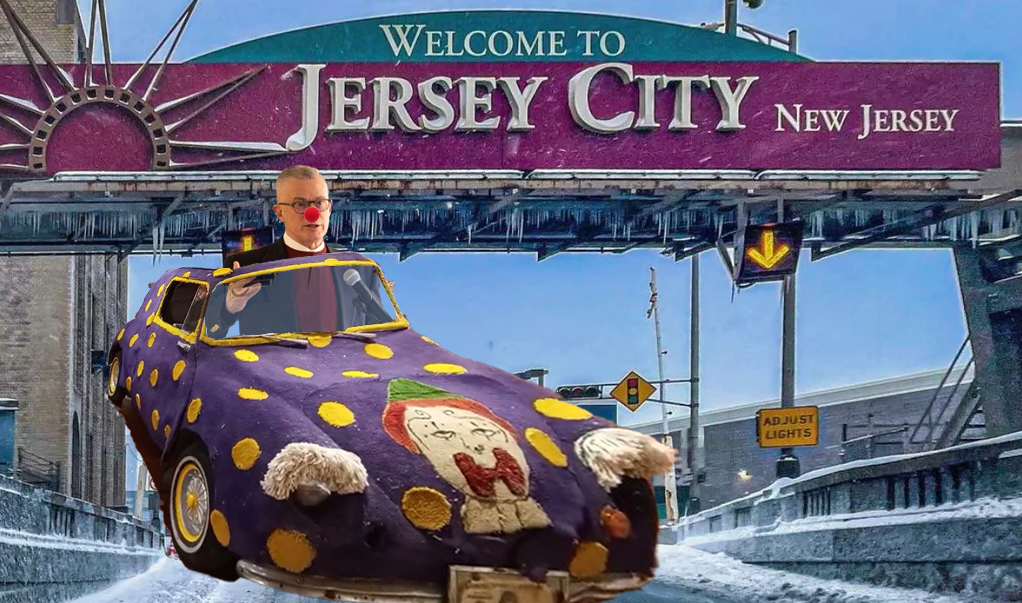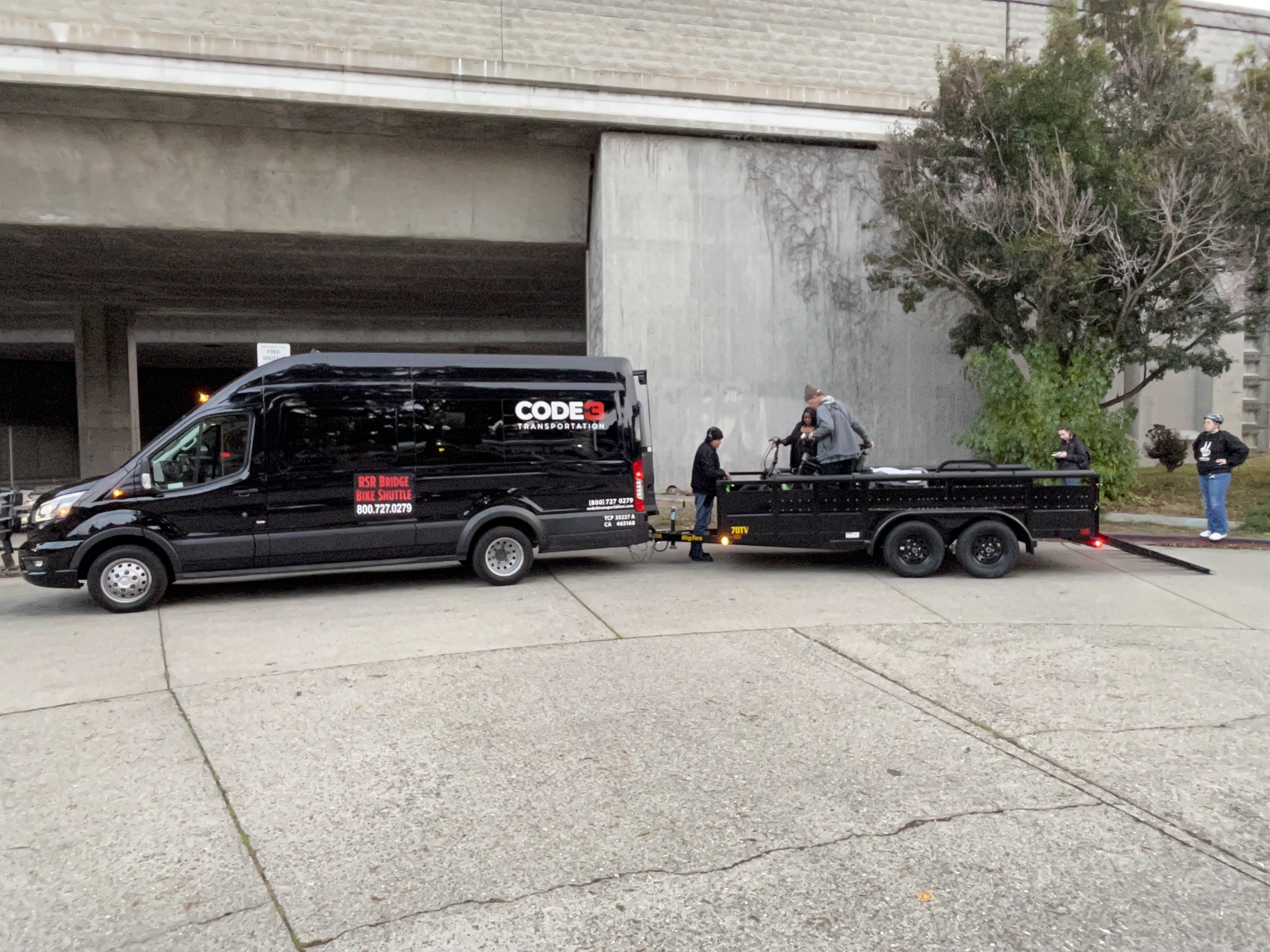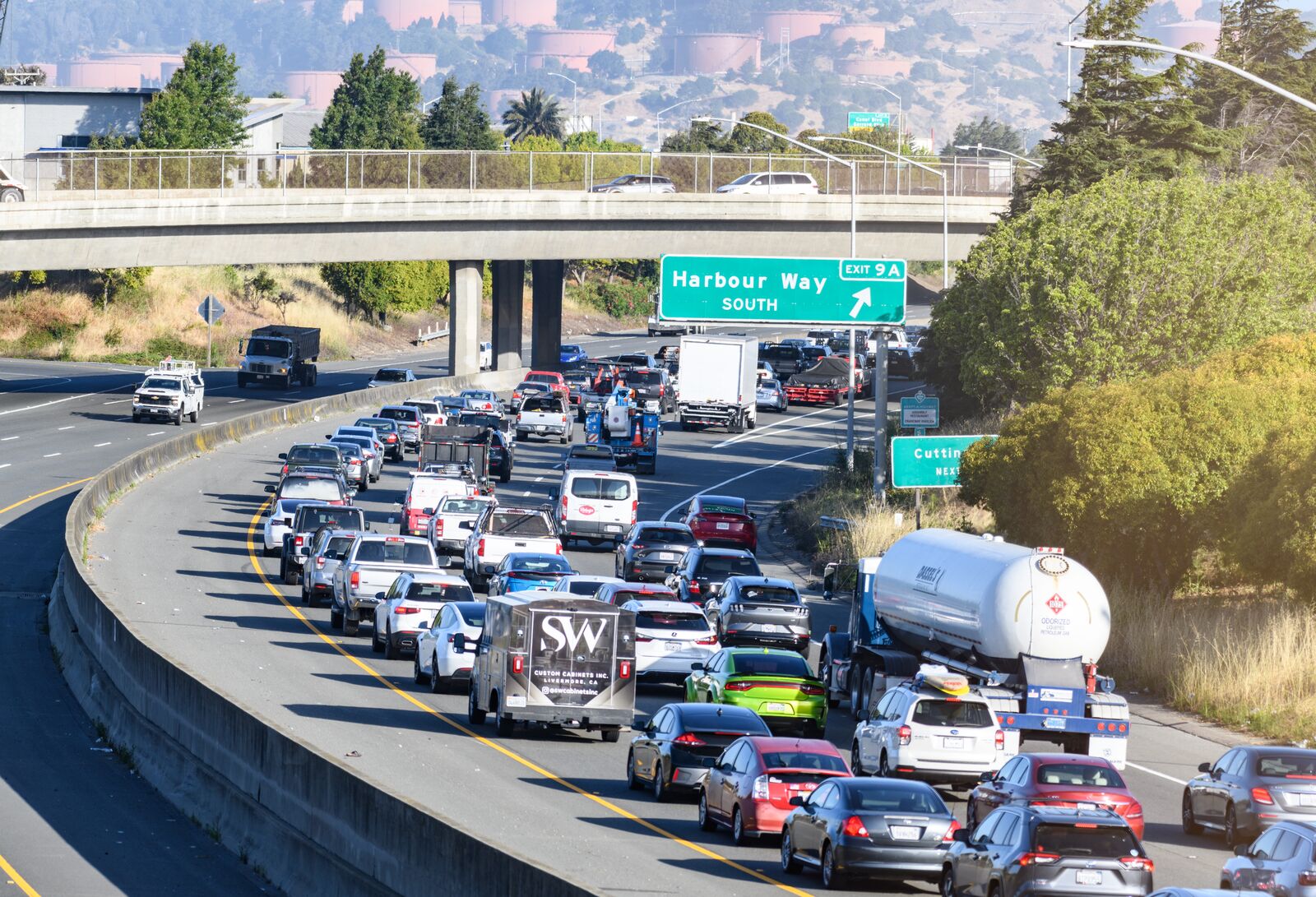#transportation-policy
#transportation-policy
[ follow ]
#congestion-pricing #public-transit #urban-planning #e-bikes #bike-lanes #new-york-city #street-safety
New York Giants
fromStreetsblog
1 week agoCouncil Transportation Chair Vows To Take On Drivers: 'I Don't Want To Just Futz Around the Edges' - Streetsblog New York City
Abreu prioritizes reclaiming street space for people, implementing sealed curbside trash bins that removed parking spots and challenging car-storage norms to improve sidewalks.
fromStreetsblog
2 weeks agoImproving Road Safety Is A Win For The Climate, Too - Streetsblog USA
Hundreds of preventable fatalities and more than 13 million metric tons of climate pollution would be avoided by 2045 if Congress passed legislation that answered advocates' long- time demand to require state DOTs to set declining annual fatality targets - and reallocate highway money to safety projects if they don't meet those goals, according to a new analysis from Evergreen Action.
US politics
fromStreetsblog
2 weeks agoWill New Jersey's Terrible E-Bike Law Spread to Other States? - Streetsblog USA
Panic is the appropriate response to the passage and signing of a new law in New Jersey that requires all e-bike riders 17 and older to have driver's licenses, registration and insurance (which may not even be available and proof of which they must carry with them while riding) and wear a state-approved motorcycle helmet. Riders 15 or 16 years old will need to acquire a "motorized bicycle license."
US politics
fromMission Local
2 weeks agoThe Great Highway is poised to become San Francisco's kidney dialysis
Barring unforeseen lunacy, come November, you'll be voting on cars on the Great Highway - for the third time since 2022. Like PAY YOUR PROPERTY TAXES BY DECEMBER 10 AND APRIL 10!!! there are some things you can apparently mark in permanent pen on your calendar. At the statewide level, you'll be voting about kidney dialysis and, locally, you'll be voting on this.
SF politics
California
fromStreetsblog
3 weeks agoUC Berkeley Report Says California Transportation Policy Is Still Built for Cars - and It's Deepening Inequality - Streetsblog California
California's transportation planning prioritizes cars over people's access, worsening inequality, unsafe streets, higher costs, and housing pressures.
fromStreetsblog
1 month agoAdvocates Move to Save Oakland's Parking Enforcement - Streetsblog San Francisco
We write to you today in alarm. It has come to our attention that the Administration is planning to move parking enforcement from OakDOT to Finance. While this may appear as a simple administrative shift, it is a strategic error that will undermine Oakland's transit, safety, and economic goals. Please initiate review with Council through issuing a Statement of Purpose for their review, and delay these changes until approved by Council.
California
Environment
fromStreetsblog
1 month agoFive 'Supercool' Transportation Founders to Watch in 2026 - Streetsblog USA
Transportation start-ups accelerate decarbonization by deploying low-emission mobility options, optimizing vehicle systems, and leveraging market momentum to scale solutions ahead of 2026 policy changes.
US politics
fromLGBTQ Nation
1 month agoSean Duffy takes credit for Pete Buttigieg's infrastructure grants - LGBTQ Nation
Sean Duffy uses partisan MAGA rhetoric to blame predecessors, rebrand Biden-era infrastructure funding as Trump administration achievements, and push ideological transportation priorities.
US politics
fromusa.streetsblog.org
1 month agoNew Bill Would Help 'REPAIR' America's Worst Infrastructure By Reimagining It For People Streetsblog USA
Reauthorize and expand the Reconnecting Communities and Neighborhoods program to $15 billion to repair divided neighborhoods, address rescinded funding, and attract bipartisan support.
US politics
fromStreetsblog
2 months agoThe Real Reason America Can't Have The Tiny Japanese-Style Cars Trump Says He Wants - Streetsblog USA
Trump's push for Japanese-style micro 'kei' cars will fail unless U.S. policies, road design, and vehicle regulations are radically overhauled to protect non-drivers.
fromwww.mediaite.com
2 months agoSecretary of Transportation Says I Don't Have a Plan to Reduce Costs' of Sky-High Airport Food
What I am trying to do is provide healthier options for people. And again, who doesn't love a greasy burger at the airport? I know I do. Sometimes you're grabbing chips, but other options when you want that healthy choice, that you can have access to, 'cause whenever I make those bad choices, I always feel like garbage when I get on the plane. Letting people have a better option, I think, is what we're focusing on here.
US politics
fromBrooklyn Paper
2 months ago'A game-changer': Staten Island-Bay Ridge ferry sets sail for first time in six decades * Brooklyn Paper
The St. George route runs about every 37 minutes during peak hours and roughly every 50 minutes during non-peak hours, with stops in western Manhattan at Midtown West/Pier 79 and Battery Park City before reaching Staten Island's St. George Terminal. Travel time from St. George to Bay Ridge's ferry slip at the American Veterans Memorial near Owl's Head Park is approximately 11 minutes.
Brooklyn
fromStreetsblog
2 months agoNot So Fast! We Rode NYC Ferry with Would-Be Council Speaker Amanda Farias - Streetsblog New York City
Menin declared victory right before Thanksgiving - earlier than any speaker candidate in New York history - but with weeks to go before the actual vote there is still time for Council members to reconsider. The "vote pledges" that Menin has in her pocket are worth only a little bit more than the press release they're printed on, and as one reporter once said about the shifting sands of these alliances, " politics ain't beanbag."
New York City
fromStreetsblog
3 months agoTransportation Politics Is Inherently Radical - Streetsblog USA
Regular people make political transportation decisions all the time without realizing it. For example, when a person in a car-dependent place decides to go anywhere, they may not feel like they are making a transportation choice, and they may not be aware of how their choice affects others. From their perspective, they are not choosing to drive to a destination; they are just choosing to go there, and they may feel like a car is their only option.
US politics
US politics
fromStreetsblog
3 months agoTalking Headways Podcast: Why Are We Going Backwards? - Streetsblog USA
Federal transportation funding continues to prioritize highway expansion while rail and transit receive minimal obligated federal dollars, and grant freezes plus limited project transparency hinder better investment.
New York City
fromStreetsblog
3 months agoThe Bronx Needs a Mayor Who Will Reimagine the Entire Expressway Corridor - Streetsblog New York City
The Stop the Cross Bronx Expansion coalition halted Gov. Hochul's $900M plan for a mile-long elevated roadway, preventing increased pollution and health impacts for over 64,000 residents.
California
fromFast Company
3 months agoTransportation secretary warns California could lose $160 million in funding. Here's why
Transportation Secretary Sean Duffy threatens to withhold $160 million and potentially revoke California's authority to issue commercial driver's licenses over noncitizen licensing.
New York City
fromwww.amny.com
3 months agoOp-Ed | Move the Vote NYC!: Voter Guide on Transportation Issues for2025 Mayoral Election | amNewYork
Mayoral transportation policies will shape New York City's mobility systems, affecting streets, transit, emissions, and daily life for millions of residents and visitors.
fromPortland Mercury
3 months agoBook Review: 'Life After Cars' Authors Have Hope, Book Tour
"Cars ruin everything." That's the bold opening line of Life After Cars, the new book by celebrated transportation media figures Sarah Goodyear, Doug Gordon, and Aaron Naparstek. The writers make a case for that initial assertion, detailing the various ways cars-or, more specifically, car culture as we currently know it-ruin childhoods, destroy wildlife, perpetuate societal injustices, and kill people, to name a few particularly negative effects.
Cars
US politics
fromwww.mercurynews.com
4 months agoFederal government to withhold $40 million from California for not enforcing trucker English requirements
Transportation Secretary Sean Duffy will withhold $40 million from California for failing to enforce English proficiency requirements for commercial truck drivers, citing safety concerns.
US politics
fromStreetsblog
4 months agoEveryone to Congress: Stand Up and Fight for the Infrastructure Funding You Allocated (And Your Constituents Need) - Streetsblog USA
Administration delays and rescissions of infrastructure funds for projects labeled 'green,' 'equitable,' or 'hostile to cars' endanger bipartisan transportation investments.
US politics
fromStreetsblog
5 months agoBreaking: US DOT Pulls Grants For Projects That Aren't Focused on Cars - Streetsblog USA
The federal Department of Transportation is rescinding multimodal walking and biking grants, reallocating funds toward car-focused projects and reversing prior multimodal funding decisions.
fromFast Company
5 months agoWhy we built cities for cars, not people, and how we can fix that
Car-centric planning has hollowed out our cities. Zoning regulations, freeways, and cheap fuel gave rise to sprawling suburbs and isolated communities, dependent on personal vehicles for even the most basic tasks. It's a system that punishes the poor, marginalizes the elderly and disabled, and makes public life thinner and more precarious. The car promised freedom, and delivered debt, pollution, and dependence.
Environment
New York City
fromStreetsblog
5 months agoWest Side Community Board Fails to Back Safety Over Parking - Streetsblog New York City
Community Board 7 removed language prioritizing safety 'over the storage of private vehicles,' thereby weakening a resolution urging DOT to prioritize curb safety over parking.
fromStreetsblog
5 months agoNew Leadership at Transform - Streetsblog San Francisco
Deutsch-Gross has been Transform's Policy Director since 2022. During that time, he has spearheaded campaigns that led to major advocacy wins, forged powerful coalitions, and helped craft a bold vision for a more just, sustainable, and connected California. His leadership has played a central role in ongoing discussions about regional and statewide policies to preserve funding for affordable housing, save Bay Area transit from fiscal collapse, and move our state transportation policy beyond highway widening.
California
US politics
fromPortland Mercury
5 months agoGood Morning, News: Legislators Forced to Fix Oregon's Transportation Budget, a Homicide at Burning Man, and Oregon's Fight to Save an Endangered Newt
Portland's Mercury relies on reader support to sustain local journalism and arts coverage while local activists and lawmakers act on transportation funding and labor protests.
US politics
fromThe Art Newspaper - International art news and events
5 months agoFlorida's rainbow crosswalks and other public art ordered removed
Florida's FDOT is enforcing a directive to remove colorful crosswalks and pavement murals deemed "social, political or ideological," threatening funding for noncompliant cities.
fromwww.mediaite.com
7 months agoHouse Dem Throws Down with Trump's Transportation Secretary Over NYC Subway Safety: Don't Call Me a Liar!'
Nadler accused Duffy of mischaracterizing the state of the New York subway system, stating that major crime, including assaults, is down 3% since last year.
NYC politics
Alternative transportation
fromStreetsblog
7 months agoThese U.S. Communities' So-Called 'Complete Streets' Policies Don't Even Deserve the Name - Streetsblog USA
Most recent Complete Streets policies in the U.S. are deemed ineffective and many may no longer qualify as such.
Sixty percent of new policies fell below a critical evaluation threshold.
[ Load more ]



